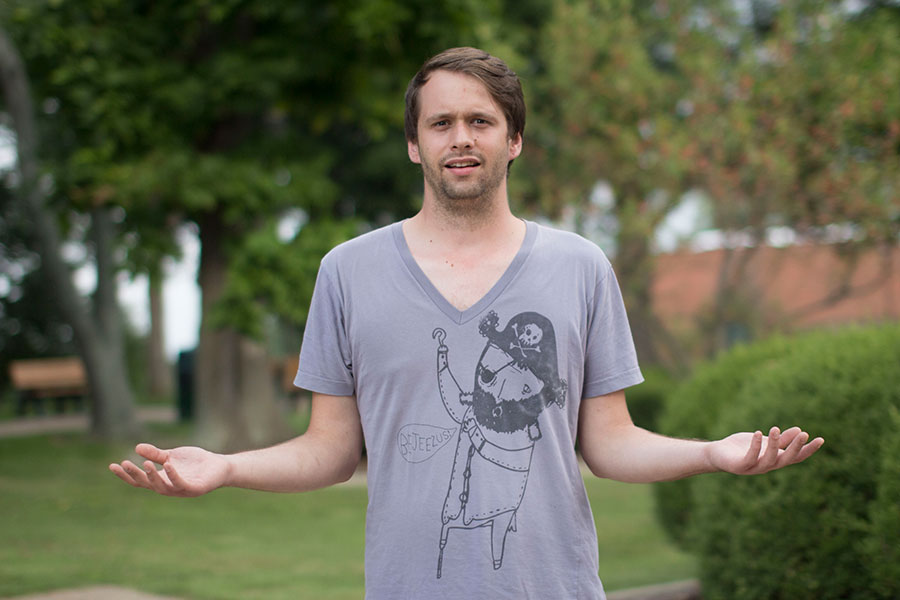We should probably stop trying to be funny
January 13, 2015
From the constant controversy that surrounds the work of South Park to Steven Colbert being called racist for his use of satire to the news organizations that refused to air the Charlie Hebdo cartoons that made them targets in the first place. You can see a trend, not of censoring, but of being overly sensitive.
Recently, two contributors to the art of satire and mockery have been attacked by those they were mocking.
On January 7, the French publication Charlie Hebdo, similar to America’s satirical news organization The Onion, was attacked by what is believed to be Islamic extremists because of their mocking depiction of the Islamic prophet Muhammad. Three men came to the Charlie Hebdo offices with Kalashnikov assault rifles and opened fire on the unarmed writers, editors and security at Charlie Hebdo.
Sony Pictures faced what the US government called the largest cyberattack in the nation’s history in December. The hacking group “Guardians of Peace” stole terabytes of information because of Sony’s film The Interview. The group then released thousands of documents, emails and social security numbers from Sony Pictures employees. They did this because The Interview’s central plot was the assassination of the North Korean leader Kim Jong-un.
Following both of these attacks, there has been massive support behind both Sony Pictures and Charlie Hebdo. The Interview became Sony’s highest grossing online film of all time and the people of France took to the streets with signs and shirts saying “Je suis Charlie,” I am Charlie, to show their support for Charlie Hebdo.
This is a far cry from the hypocrisy I have seen surrounding satire throughout the past year.
Satire is, by definition, never sensitive and it never should be. Satire is made to point out the ignorance of a group or person. Being vulgar, excessive, offensive and mean is all fair in satire because it works towards exposing truth.
Being sensitive to the opinions and beliefs of others, in and of itself, is not a bad habit to have. I would never want to push forward the idea that we, as humans, should be less sensitive to the wants and needs of others.
But, when it comes to satire, there should be no reservations. Any person that wishes to express their beliefs through satire should, in no way, be inhibited because of fear of persecution.
I do not feel that we have censored satire, I feel that satire has become muted and looked down upon. Those with ideas and opinions counter to the masses have been quieted because we’re afraid of upsetting any number of large, faceless groups.
Earlier this year, Stephen Colbert satirized the nonprofit started by Dan Snyder, “Washington Redskins Original Americans Foundation,” by ‘creating’ his own, similarly racist foundation known as “Ching-Chong Ding-Dong Foundation for Sensitivity to Orientals or Whatever.”
After the shows twitter account tweeted the bit out of context, there was an uproar and the hashtag #CancelColbert started trending on twitter.

Although Colbert was able to turn the situation around to his favor, it showed how being overly sensitive can be detrimental to a cause. Instead of the racism in the very real and ignorantly named “Washington Redskins Original Americans Foundation” being at the center of the issue, the issue became #CancelColbert. Essentially removing any Native American context from the conversation.
Both the Associated Press and CBC News, a division of Canadian Broadcasting Corporation, did not run Charlie Hebdo cartoons depicting Muhammad after the attack in France because, according to a report from Bloomberg, they felt the images would be offensive to their Muslim constituents.
While they are correct, the cartoons in Charlie Hebdo are made to be offensive, they are also showing that they are missing the point of cartoons themselves. These cartoons exist because there is a group of people willing to kill people who use those images, and by deeming the images as too obscene for consumption you are problematizing satire and discouraging its use as a method of free speech.
With their refusal to offend they have perpetuated the idea that being offended makes you right. Not only that, but by barring these images from their viewership they are not giving the full picture of what caused these events to happen.
Satire, when used effectively, can contribute to discussions on social issues and change. By ushering satire away from the spotlight in the name of sensitivity, we are actively putting one person’s comfort over another’s rights.


